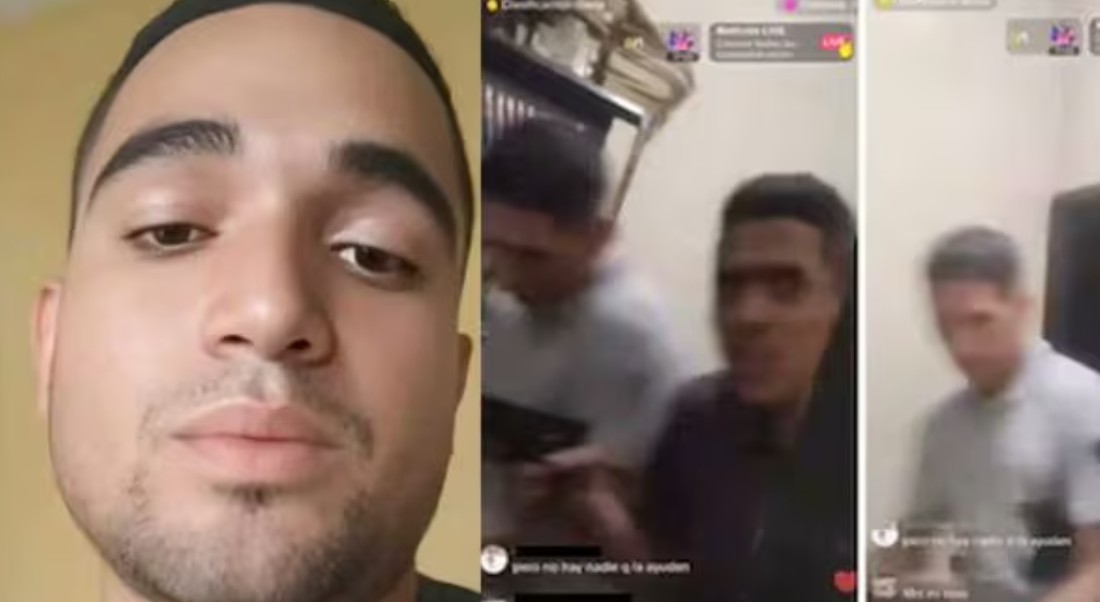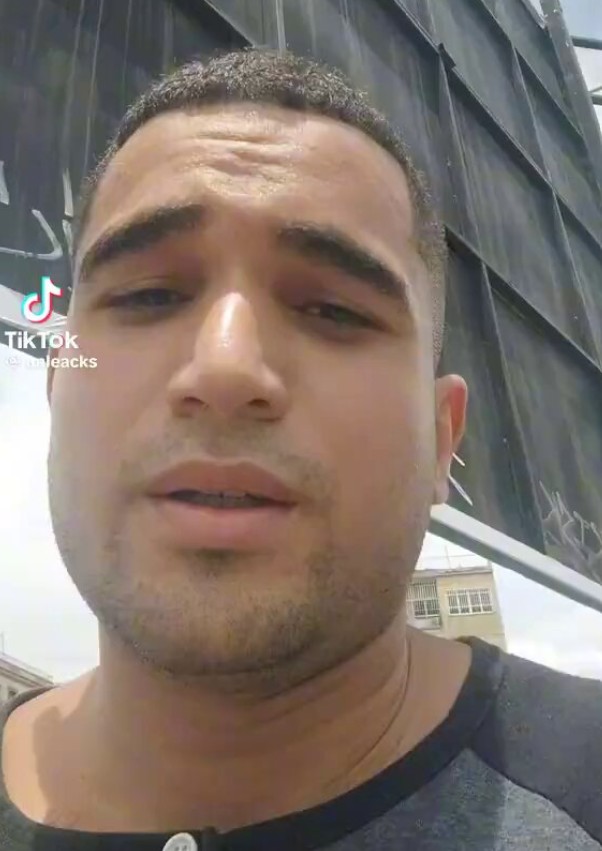Gabriel Jesús Sarmiento Video and Livestream Assassination
The digital age has made it possible for voices once silenced to be heard across continents, but it has also exposed whistleblowers and activists to unprecedented dangers. On a tragic Monday morning in Maracay, Venezuela, the life of young influencer Gabriel Jesús Sarmiento came to a shocking end when he was assassinated during a TikTok livestream.

Sarmiento had gained recognition for fearlessly denouncing the power of organized crime in Venezuela, particularly the notorious gang El Tren de Aragua. His murder, unfolding in real-time before followers, not only horrified viewers but also reignited concerns over the vulnerability of digital activists in authoritarian contexts.
Contents
The Livestream Assassination
The morning of his murder began like many of his other broadcasts. Sarmiento went live on TikTok, addressing his audience about the threats he faced and renewing his denunciations of organized crime. In the livestream, he urgently called for the intervention of Sebin, Venezuela’s intelligence agency, even going so far as to reveal his exact location.
Uncensored video of the case of Gabriel Jesus Sarmiento
gabriel-jesus-sarmiento-video.mp4
Moments later, tragedy struck. Viewers saw two armed men suddenly enter the room where Sarmiento was filming. One of them immediately raised a weapon and fired multiple shots at the young influencer. The live broadcast abruptly ended, but not before chilling audio captured a woman screaming: “Auxilio, lo mataron, lo mataron” (“Help, they killed him, they killed him”).
Clips of the livestream quickly spread across social media, shocking Venezuelans and international observers alike. For many, watching a murder unfold in real-time underscored the boldness and brutality of criminal networks operating in the country.
Who Was Gabriel Jesús Sarmiento?
Gabriel Jesús Sarmiento was not just another influencer chasing online fame. Unlike content creators who build audiences through entertainment or lifestyle content, he used his platform for a far riskier mission: exposing criminal organizations and corruption in Venezuela.

Sarmiento developed a reputation for being blunt, outspoken, and unafraid of calling out powerful figures by name. In his videos, he frequently accused police officials of collaborating with violent gangs and warned about the infiltration of criminal organizations into state institutions.
He was also known for addressing members of gangs directly, challenging them in public, and demanding accountability. This audacity earned him both admiration and enemies. Despite threats, he continued to post content, often declaring his desire for a safer and better Aragua State.
In one of his last uploads before the assassination, Sarmiento even expressed open support for the state governor showing his dual role as both a political commentator and a citizen journalist.
Sarmiento’s Final Messages Before Death
The haunting power of the livestream lies not only in the violence itself but also in Sarmiento’s final words. Just minutes before being killed, he had been denouncing El Tren de Aragua and El Tren del Llano, two of Venezuela’s most feared gangs.
He accused police officers of colluding with criminals, naming individuals he believed were compromised. He also spoke directly to Héctor Rusthenford Guerrero Flores, known as “Niño Guerrero”, the leader of El Tren de Aragua.
Sarmiento reminded viewers of a message his father once sent him, warning that the threats against him originated from this gang. In the live broadcast, he reiterated that Venezuela’s citizens deserved better than to live in fear while criminals roamed free.
“We are full of criminal officials who work with common criminals. I just want a better Aragua for everyone.” His words, both defiant and hopeful, became his last public testimony before he was silenced by bullets.
Reaction and Public Outcry
News of Sarmiento’s assassination spread rapidly across Venezuela and beyond. Social media users expressed outrage, grief, and fear, while activists warned that his killing represented a dangerous escalation in the silencing of digital dissent.
Human rights advocates noted that Venezuela had long been a hostile environment for journalists and activists. Sarmiento’s death only reinforced the perception that exposing corruption and organized crime carries fatal consequences.
For ordinary Venezuelans, the livestream killing created a chilling effect. If a young influencer with visibility and public support could be murdered so openly, what protection was left for everyday citizens who dared to speak against criminal powers?
Authorities’ Response
In the aftermath, Venezuelan authorities announced the opening of an investigation, but details remained scarce. No suspects were immediately identified, and no clear motive was officially stated.
Observers pointed out a troubling contradiction: while Sarmiento’s murder was undeniably linked to his outspoken denunciations, the Maduro government has repeatedly denied the existence of organized gangs like El Tren de Aragua. Instead, officials often frame such reports as foreign propaganda aimed at discrediting Venezuela.
This official silence contrasted sharply with the international stance. The United States, under Donald Trump’s administration, had previously labeled El Tren de Aragua members as foreign terrorists and vowed to deport them from U.S. territory.
The gap between local denial and international recognition of the gang’s influence only highlighted the complexity of tackling Venezuela’s criminal crisis.
The Criminal Organization: El Tren de Aragua
Understanding the significance of Sarmiento’s murder requires recognizing the power of the organization he challenged.
El Tren de Aragua originated in the mid-2000s inside Tocorón prison in Aragua State. Initially, it operated as a prison gang controlling extortion, contraband, and illicit activities inside the facility. Over time, it expanded into a transnational criminal syndicate with operations across South America.
Today, El Tren de Aragua engages in a wide range of criminal activities:
Drug trafficking across borders.
Human trafficking and migrant exploitation.
Illegal mining operations in Venezuela’s resource-rich regions.
Kidnapping and extortion targeting local populations.
Its influence extends beyond Venezuela to countries like Colombia, Peru, Brazil, Chile, Ecuador, and Argentina, often spreading through migrant routes.
Despite a massive raid in September 2023, when more than 11,000 Venezuelan agents stormed Tocorón prison to dismantle the gang’s stronghold, leaders such as Niño Guerrero escaped capture. This failure symbolized the resilience and reach of El Tren de Aragua, as well as the limitations of state power in confronting it.
Broader Implications
The murder of Gabriel Sarmiento is more than a personal tragedy it is a symbol of the perils faced by whistleblowers in Venezuela.
By killing him live on TikTok, the perpetrators sent a chilling message: those who challenge criminal organizations risk immediate and violent retribution. This brazen act threatens to deter others from speaking out, further silencing voices critical of gangs and corrupt officials.
It also underscores the deep entanglement of state corruption and organized crime. Sarmiento’s claims of collusion between police and gangs resonated with many Venezuelans who have long suspected such ties. His death, therefore, is not only a blow to free speech but also evidence of the entrenched impunity that empowers criminal networks.
Gabriel Jesús Sarmiento lived and died as a digital activist determined to confront Venezuela’s darkest realities. His assassination on TikTok Live shocked the nation, horrified his followers, and exposed the brutal reach of El Tren de Aragua.
Though authorities remain reluctant to admit the gang’s existence, Sarmiento’s death serves as a stark reminder of its influence and the price paid by those who dare to resist.
In remembering Sarmiento, many see a courageous young man who chose to speak truth despite the risks. His final words, demanding justice and a better future for Aragua, resonate beyond Venezuela’s borders as a call for accountability, transparency, and the protection of digital activists worldwide.
His voice may have been silenced, but his message endures a testament to the enduring struggle against crime and corruption in Latin America.
Daily News -Asap Rocky Shooting Video in Hollywood Gun Case
Yo Quiero Agua Gore Video and Internet Legacy
Jacob Savage Angel Wings and Rachel Video Controversy
Sister Hong Video and The Controversy Surrounding
Camilla Araujo Video and Social Media Storm
Breckie Hill Leak Video and the Dark Side of Influencer Fame
Sondra Blust Viral Video and the Internet by Storm

